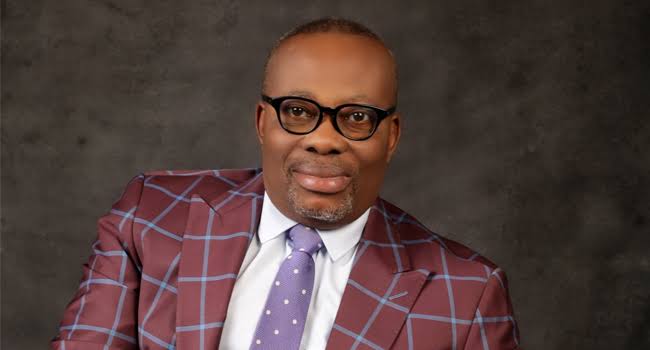“I Thought He Was an Armed Robber Until He Said ‘All of You, Outside’” This statement depicts a harrowing assault that exposes the perils of Vigilante overreach.
The recent testimony by NYSC member Elohor Jennifer Edema, recounting how she was traumatized by the actions of armed operatives of the Agunechemba Vigilante Group (also known as Operation Udo Ga-Achi) in Oba, Idemili South LGA, Anambra State, is shocking and deeply troubling . What is meant to be a lawful community security outfit to eradicate criminality in Anambra State is rapidly metamorphosing into an outfit of intimidation and violence. Elohor’s fear that she thought that they were armed robbers until they asked all of them to come out of their rooms spoke volumes of the kind of danger this group poses in recent time in the state.
The defining issue here is the adequacy of training received by these vigilante operatives. Across Nigeria, many of these groups function without formal training in procedures, rule of law, or human rights. The Hisbah Corps in northern states, for example, have faced criticism for having “a low level of formal education, no background in law, and no training in law enforcement” .
If we have to allow the vigilante groups to operate alongside the regular police force, human rights standards must be central in their training. Reports by Amnesty International made it clear that any armed vigilante acting without regard for individual rights, due process, and humane treatment should be dismantled, and perpetrators held accountable . Without these protections, we may be risking a more serious danger of having a situation where suspects will be unlawfully detained, denied fair treatment, and subjected to violence, which is what happened in the Anambra incidence.
Legal norms and acceptable practice mandate that suspects be arrested and handed over to the police, not assaulted or judged independently. Amnesty underscores that vigilante groups should “immediately hand the alleged criminals they may arrest to the police,” not keep them in custody . Yet, in practice, we are witnessing situations where suspects are kept in indefinite detentions by these people. On what legal framework, if I may ask.
It is sad to point out that even States, where armed vigilante operate, no comprehensive laws clearly define their roles. Some states like Kaduna have enacted Vigilance Service Laws, but even these are limited . In many cases, informal groups like Amotekun (South‑West) or Hisbah (North) operate in legal grey areas, with ambiguous mandates and tenuous policing authority .
I hereby propose some urgent remedial measures to avoid impending calamity that will happen if not tackled headlong. The first and perhaps the most urgent is that the federal government must enact a clear statutory framework defining the authority, limitations, and oversight mechanisms for all vigilante groups nationwide.
This is necessary to create uniformity. I know that some persons will argue against this due to the desire to decentralize governance, but the independent approach by the states has created more havoc than it set out to eradicate. Secondly, vigilante operatives should undergo rigorous training covering human rights principles, proper use of force, arrest procedures, and referral protocols.
Thirdly, vigilante groups must be explicitly restricted to support functions, such as community patrol, intelligence gathering, and rapid reporting, not enforcement or detention.
Any enforcement must be followed immediately by handing suspects to official police authorities. It is important for us as a country to create independent oversight bodies at state and federal levels to monitor vigilante activities. Any violations of code of conduct should trigger sanctions, prosecution, or disbandment. Where rights are violated, affected persons must receive prompt redress and compensation . We must encourage more states to adopt laws similar to Kaduna’s Vigilance Service Law, strictly regulating recognition, operations, funding, and termination of vigilante functions . The states should clearly define the roles of vigilante body in their various statutes.
Finally, the States with vigilante outfits must foster stronger, formal collaborations between vigilante groups and the Nigeria Police Force, ensuring joint accountability, clear chains of command, and shared objectives in upholding public safety without abuse .
In conclusion, the traumatizing experience endured by Elohor is not just a personal tragedy, it raises a national alarm. It signals systemic weaknesses in how informal security is structured and supervised. If vigilante groups are to remain part of States’ safety strategies, they must operate within well-defined legal frameworks, be properly trained, and remain answerable to the state and citizens.
Without urgent reforms, the risk is clear: we will have a calamity of abuse, untimely deaths, and disincentive to investment. The message to us all is simple, build order, not disorder. For the sake of individuals like Elohor, and for the integrity of public safety, the States must re-appraise the operational safety of these groups.
The government of Anambra, headed by Prof Charles Soludo, has done well in their response to this abuse so far. We are watching to see how these horrific and animalistic behaviours by those lawless agents will be accounted for at the end of the day. We demand justice for Elohor Jennifer Edema!
Dr M.O. Ubani SAN is a Legal Practitioner and Policy Analyst.
Gatekeepers News is not liable for opinions expressed in this article, they’re strictly the writer’s







